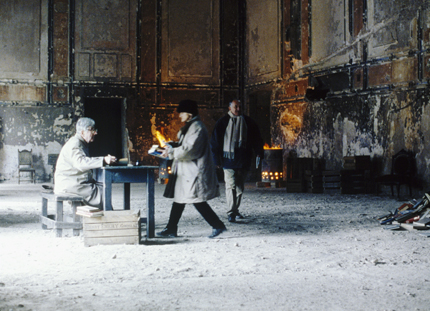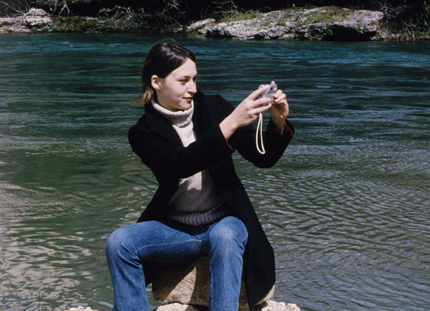Notre Musique
(Our Song)


This reviewer got a lot of flack for In Praise of Love, Jean-Luc Godard's last film. Everything said still remains the same. People admire Godard because of the films he made years ago. They will like anything he puts out only because he is Godard, not necessarily because the films are any good. If a relative unknown released Notre Musique, that person would probably be laughed off. Still, Godard is trying to say something in his new film, which takes a structure similar to Dante's Divine Comedy, with a section for Hell, Purgatory, and Heaven. He is as difficult to understand as ever, and the best way to figure out what is going on is to read the production notes, which lay everything out relatively simply.
The problem with this is that it should not be necessary to do this. And it is near impossible to glean said information from watching the film by itself. Equally frustrating is the habit of not subtitling all of the dialogue. It's never clear what these lines are, and whether the dialogue is important or not. Hell, which consists of a montage of war footage, both actual and from old movies, and Heaven, which has a woman walking through an idyllic forest, are each about ten minutes in length. Purgatory takes up the bulk of the film, and at times, feels like forever.
Purgatory is an indictment of war and a meditation on the nature of duality. The latter works best, especially in a segment where Godard (Liberty and Homeland), playing himself, explains the duality of nature by using photographs and their reverse images. The bulk of Purgatory takes place at a literary conference in Sarajevo, where Godard runs into various actual scholars and authors playing themselves, as well as stranger things like two Native Americans. Notre Musique is more accessible than many of Godard's other films, but his conclusions seem a bit simplistic. Still, the images are gorgeous, and sometimes surreal.
The nature of duality really comes out in two characters, Olga (Nade Dieu, The Butterfly, Zero Defaut) and Judith (Sarah Adler, Upheaval, Dresden). Judith is of Jewish descent, and she is interested about issues surrounding Israel and Palestine. Olga is a Russian Jew who is much more somber than Judith. They are two sides of a coin. A very boring coin. Notre Musique has a lot of abstract dialogue, some directly related to the film and some tangentially related. This film will appeal primarily to fans of Godard, and has no chance of success anywhere else.